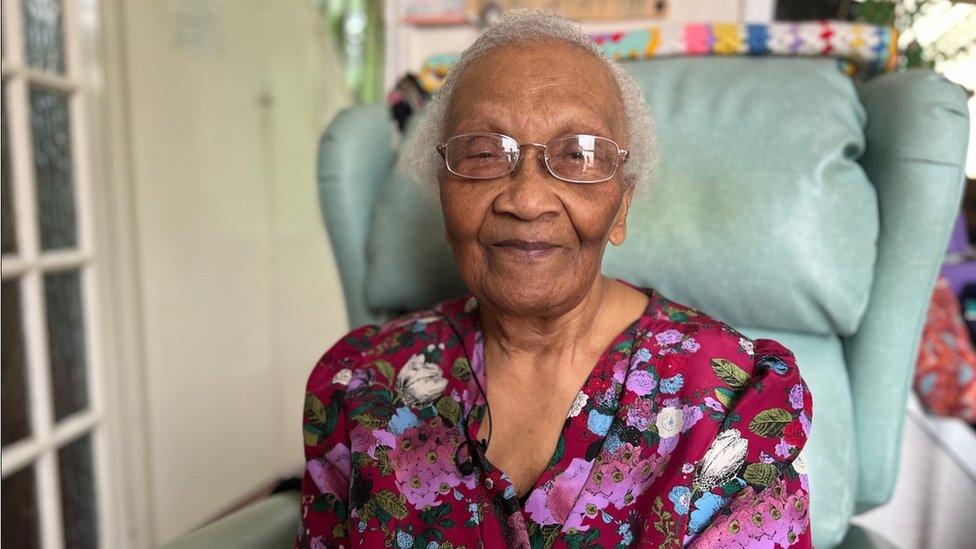Artwork commemorates 60th anniversary of Bristol's civil rights bus boycott
- Published
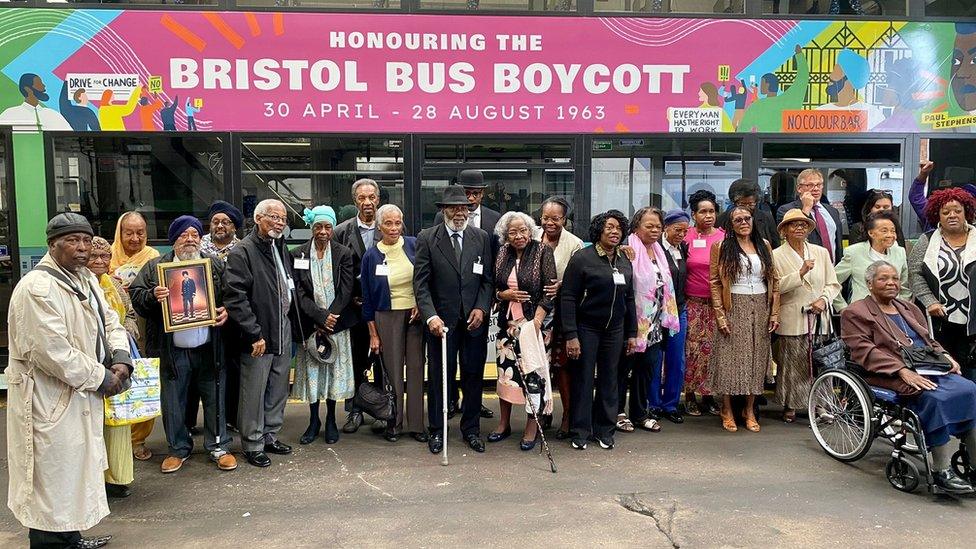
A First bus has been decorated in honour of the Bristol Bus Boycott
A redecorated city bus has been unveiled celebrating the 60th anniversary of the Bristol bus boycott.
First Bus has unveiled a specially decorated double-decker honouring the campaigners, which will remain in place for a year.
The winning design for the bus was entered for the competition by Alissa Thaler, 32, an Italian illustrator, external.
Other events, led by equality campaigner Julz Davis, will also mark the occasion across the city.
A ceremony of thanks and lunch with original campaigners is being held at St Mary Redcliffe Church.
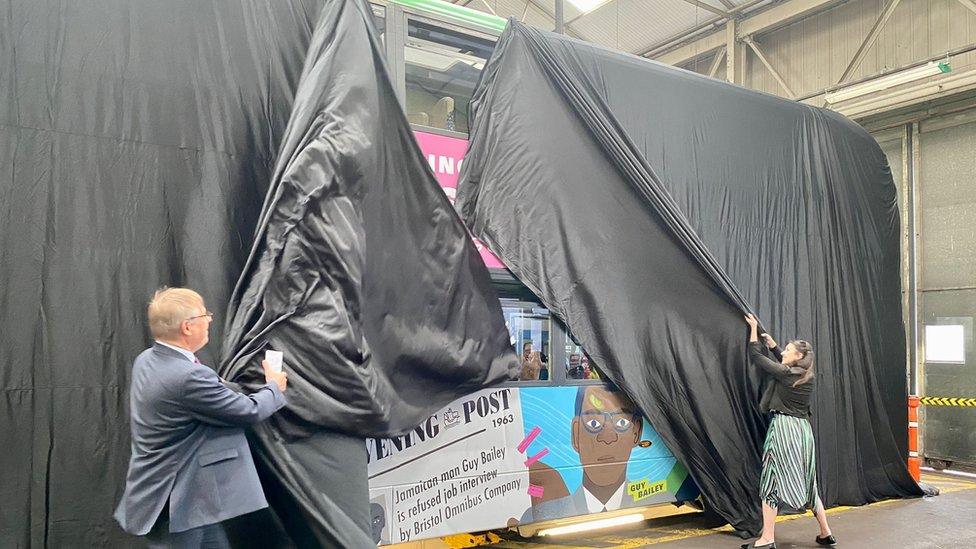
The design was unveiled at a the main bus station in Easton
The boycott began in April 1963, after the Bristol Omnibus Company refused to hire black drivers. A student called Guy Bailey had the offer of a job interview withdrawn when the company realised he was West Indian.
The subsequent campaign was a pivotal to the passing of the UK Race Relations Act 1965, which made racial discrimination unlawful in public places, as well as the Race Relations Act 1968, which extended the provisions to employment and housing.
Mr Bailey was awarded an OBE in 2005 for his part in these campaigns.
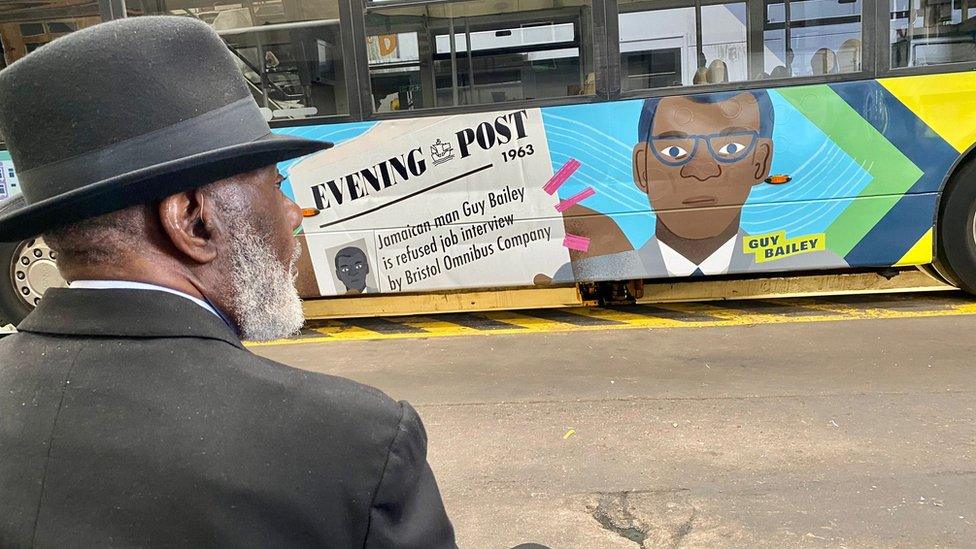
In 1963 the Bristol Omnibus Company withdrew Guy Bailey's offer of a job interview
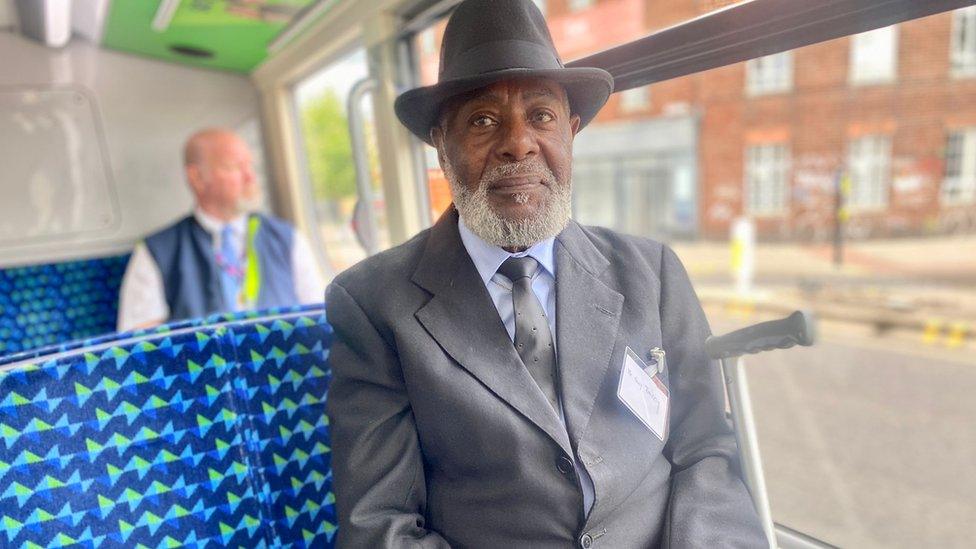
At the event, Mr Bailey said he is a "happy man" today
Looking back 60 years ago to the boycott, Mr Bailey said the result of the campaign brought home the "significance of respect".
"60 years ago I was a sad young man. Today I'm a happy man," he said.
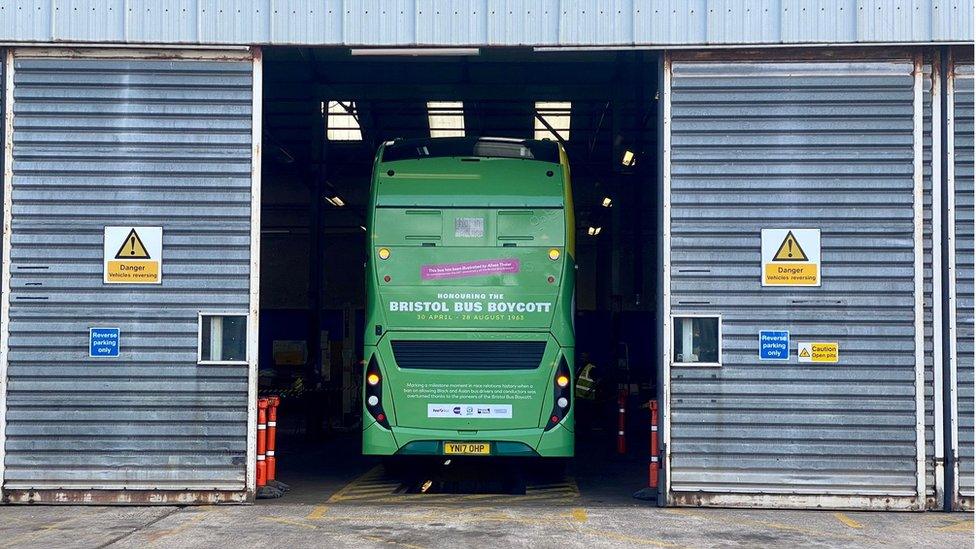
The bus will carry the new design for a year
"I was told 'We don't employ black people because if we employ black people we will displease our white bus crew'. And that made me sick to the core of my stomach.
"I hope we can develop a true life for all people not just black people, but for everyone to work together. There is enough in the world for all of us."
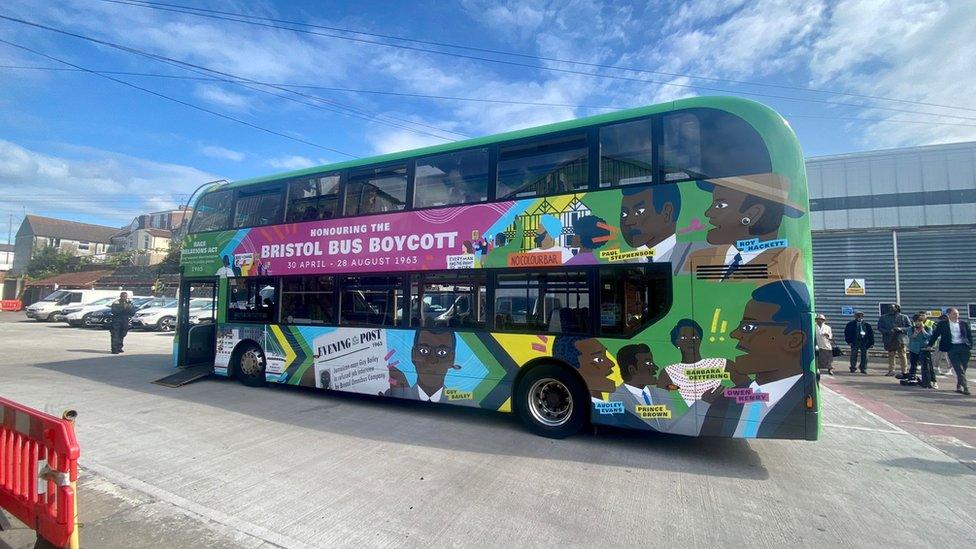
University of the West of England lecturer Roger Griffith also attended the event and said it was "extremely important".
"The men and women of Bristol who came together and marched together changed the face of Britain through the Race Relations Act in 1965," he said.

The bus did a tour through Bristol and ended at a bus boycott mural on Jamaica Street
"Seeing the bus is wonderful. We've worked closely with community members and leaders to make this happen."
Event organisers hope to take the bus with some of the original bus boycott leaders and family members to parliament in September.

Follow BBC West on Facebook, external, Twitter, external and Instagram, external. Send your story ideas to: bristol@bbc.co.uk, external
- Published30 August 2023

- Published28 August 2023
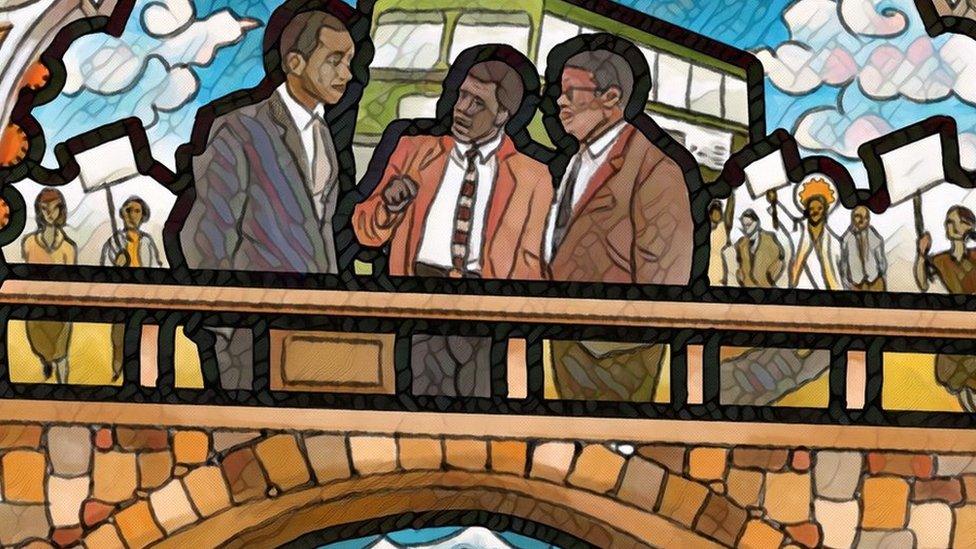
- Published21 August 2023
